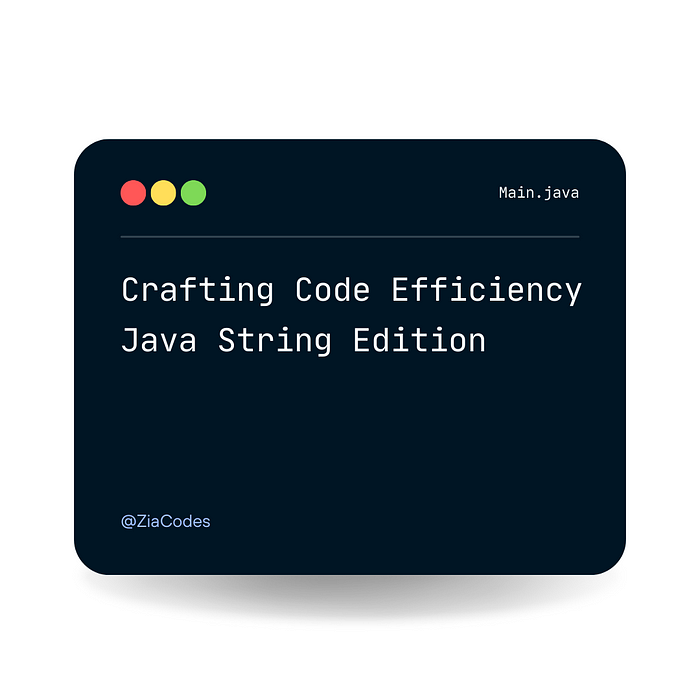Mastering String Manipulation in Java: A Comprehensive Guide to Choosing Between StringBuilder, String Concatenation, and String.format()

Optimizing String Manipulation: Choosing Between StringBuilder, String Concatenation, and String.format()
Picture this scenario:
You’ve been tasked by your manager to optimize a codebase, and as you delve into the existing code, you notice that it often uses the plus (+) operator for string concatenation. You, being the proactive developer, immediately start refactoring this code by replacing string concatenation with StringBuilder. After all, it’s a well-known fact that strings in Java are immutable. When you use the plus operator to concatenate two strings, a new object is created each time. In contrast, StringBuilder appends strings to the end of an existing string, seemingly making it the superior choice.
However, before you leap to any conclusions, consider the nuances involved. There are two distinct scenarios to take into account:
Case 1 — Concatenating Strings in a Single Statement:
The Java compiler is quite clever, but it’s not infallible. When you concatenate a few strings using the plus operator within a single statement, the compiler optimizes the concatenation process internally. In other words, it provides performance that is on par with using StringBuilder. Additionally, employing plus concatenation often enhances code readability, making it a win-win choice in such cases.
Here’s a code example to illustrate this:
String firstName = "John";
String lastName = "Doe";
String fullName = firstName + " " + lastName; // Compiler optimizes this internallyCase 2 — Concatenating Numerous Strings in a Loop:
In situations where you need to concatenate a large number of strings, using the plus operator can significantly increase the cost in terms of performance. The StringBuilder operation outperforms string concatenation in loops, making it the more efficient choice.
Consider this code snippet:
StringBuilder result = new StringBuilder();
for (int i = 0; i < 1000; i++) {
result.append("String" + i); // StringBuilder is more efficient in a loop
}It’s worth noting that String.format() is not suitable for string concatenation. It neither provides optimization nor contributes to code readability. Consequently, it’s best avoided for this purpose.
In conclusion, the choice between StringBuilder, plus operator concatenation, and String.format() depends on the context of your code. Understanding when to employ each technique is crucial for optimizing string manipulation in Java.






